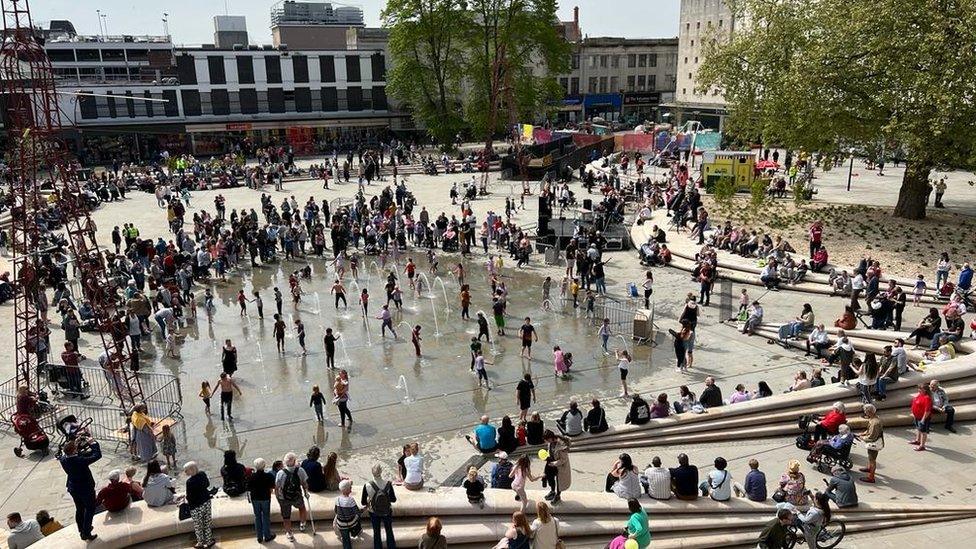Roman remains found underneath former Gloucester Debenhams store
- Published
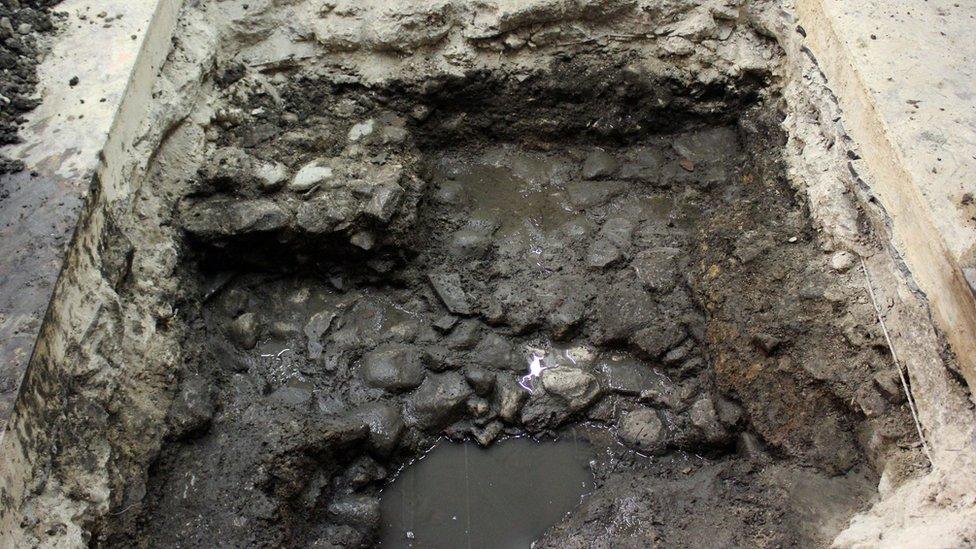
A cobbled Roman street was discovered in a test pit dug inside what used to be a Debenhams department store
A Roman wall and cobbled streets have been discovered underneath a former high street store.
Archaeologists unearthed the structures as part of a building project to convert Gloucester's old Debenhams shop into a university campus.
The work has also uncovered the original site of St Aldate's Church, which was built in the 18th century.
City archaeologist Andrew Armstrong said that finding the remains had been "really encouraging".
He said it had been known for many years that there were important archaeological remains at the site, but that he "didn't know if they'd survived or not".
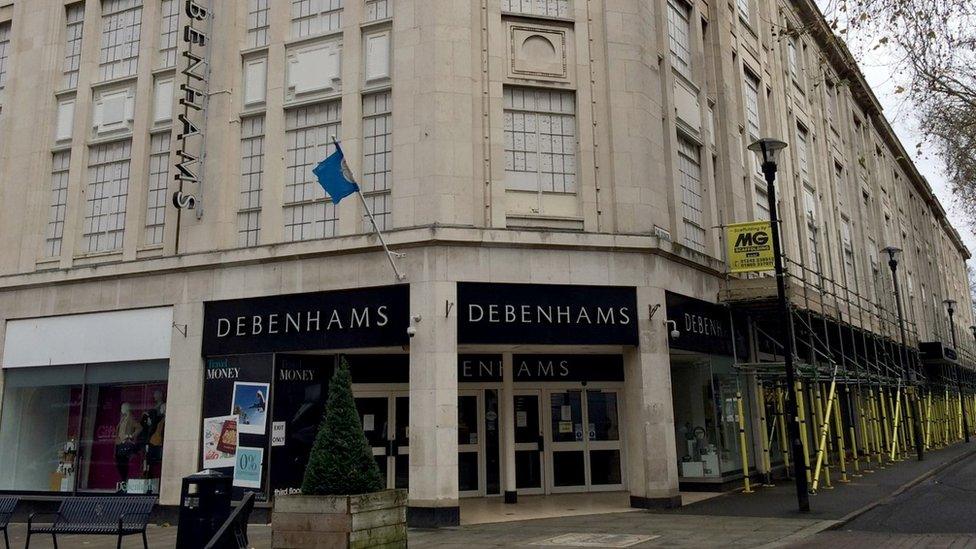
The former Debenhams store on Kings Square is being turned into a new campus for the University of Gloucestershire
"We expected a lot of the archaeology to be destroyed," added Mr Armstrong.
He said the discoveries meant there was hope that historical remains thought to have been lost in other parts of the city could have survived too.
Cotswold Archaeology was commissioned to work on the site after an investigation was requested by the city council as part of the conditions of planning permission.
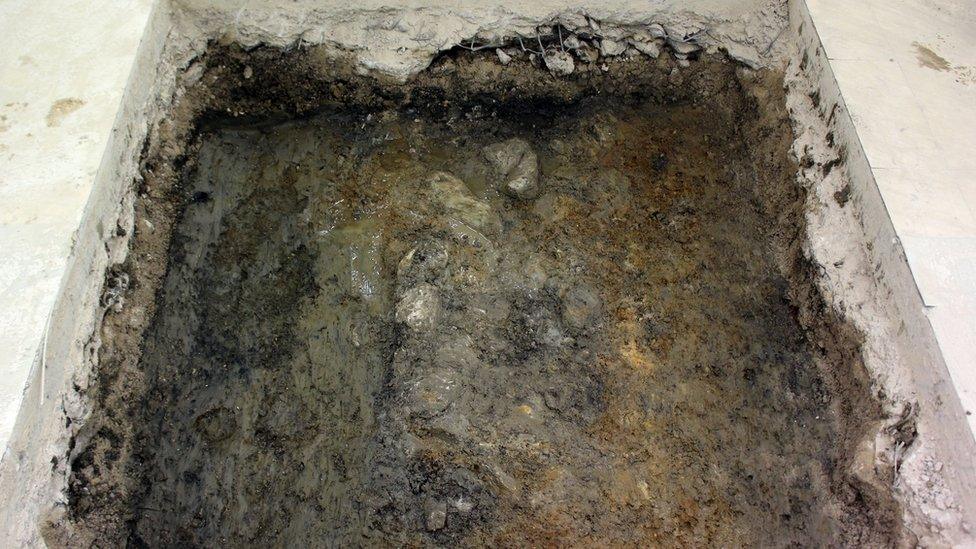
A Roman wall, thought to be from a townhouse or similar building, has been found at the site
Mr Armstrong said they had found remains of what they believe are Roman roads and buildings underneath what used to be the department store's menswear section, despite damage caused by the construction of a basement.
Previous research suggested the building was the location of a former church after Roman and medieval items were found when it was extended in the 1950s and 1960s.
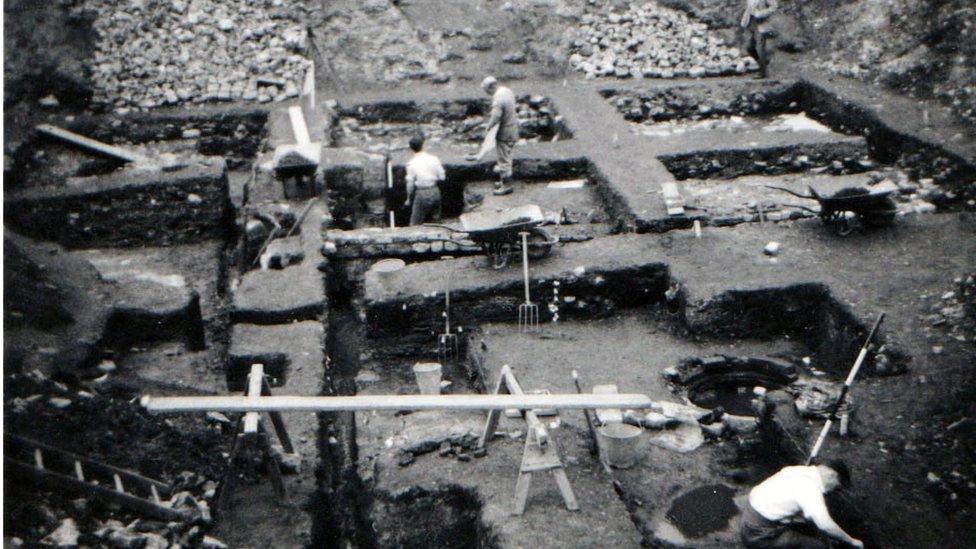
Preserved mosaics were found when the building, then a Bon Marche store, was extended in the 1950s and 1960s
"In the courtyard off St Aldate's Street, we found the remains of St Aldate's Church and churchyard," he added.
Mr Armstrong said the findings should not cause a problem for the development of the site but it meant archaeologists would need to carry out further excavation work.
The University of Gloucestershire's plans for a new campus were approved in March and will include teaching spaces equipped with the latest technology, a lecture theatre, library, student help zones and a dedicated faith room.
You can listen to BBC Radio Gloucestershire's chat with city archaeologist Andrew Armstrong here.

Follow BBC West on Facebook, external, Twitter, external and Instagram, external. Send your story ideas to: bristol@bbc.co.uk , external
Related topics
- Published3 March 2022

- Published17 March 2021
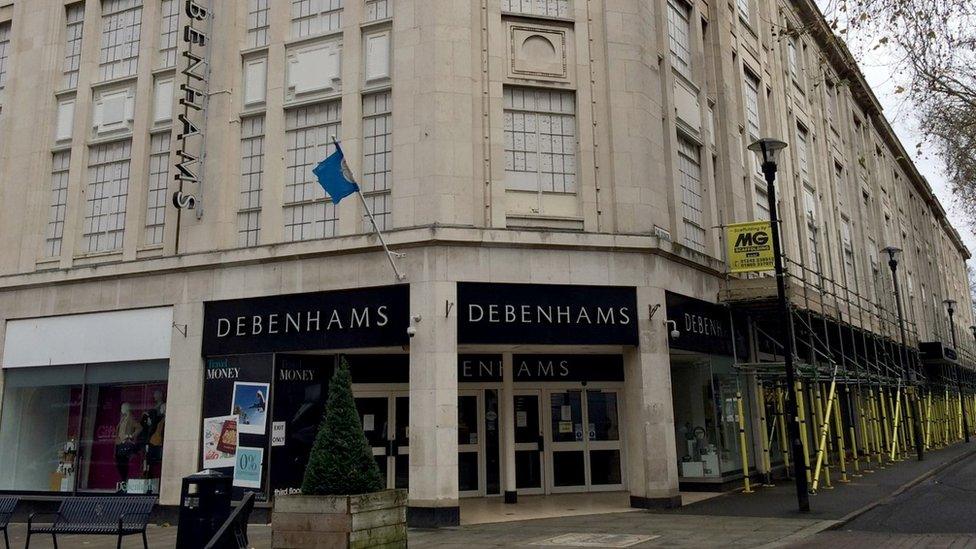
- Published11 July 2022
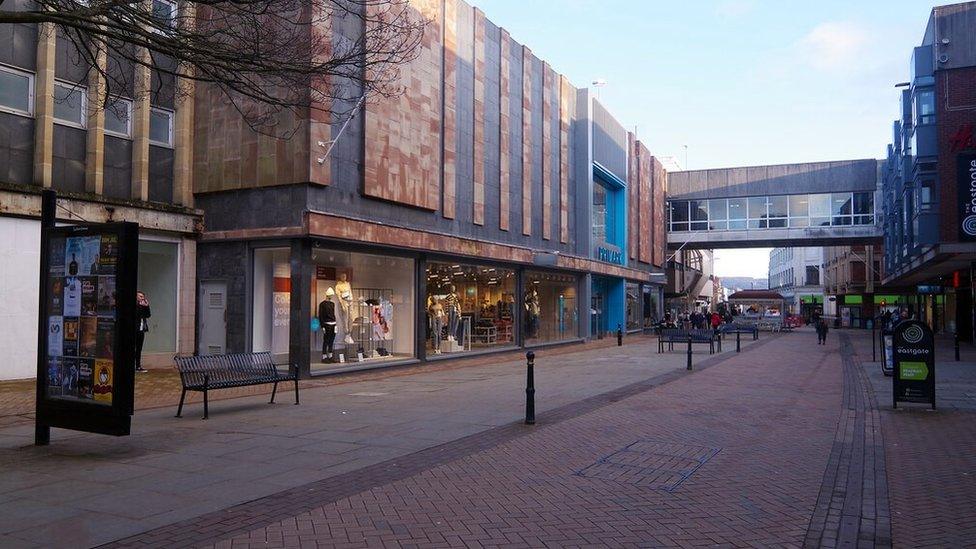
- Published1 May 2022
